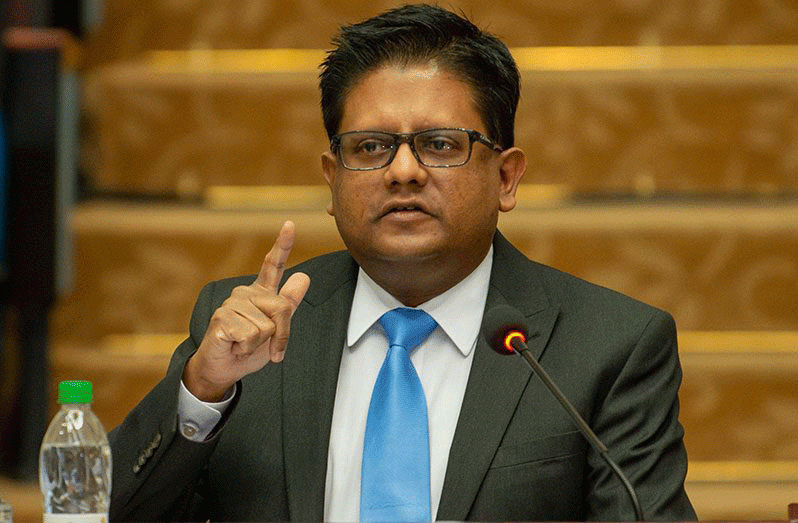Finance Minister says
WITH Venezuela seemingly going full speed ahead with its December 3, 2023 referendum on Guyana’s Essequibo region, Senior Finance Minister Dr. Ashni Singh has called for the diaspora to be more engaged on the border controversy.
The minister made these remarks during an interview with Richard Aziz on CSTV Canada ‘Guyana Today’.
The government official also highlighted and condemned the aggressiveness which has been emanating out of Venezuela.
“Violence and the threat of violence and provocative action in relation to your neighbour have no place in the modern world and in modern international relations. And no responsible government should be engaging in violence and the threat of violence and in provocative and aggressive action against their neighbour,” he said, while underscoring that the international community has spoken numerous times about this.
Furthermore, echoing that Guyana is on the right side of justice, Singh also revealed that this why the nation has been receiving support from regional and international bodies.
He then said that the diaspora has always played an important role in advancing Guyana’s interests, both in the protection and preservation of democracy and the advancement of the nation’s economic interests.
He said: “It is absolutely essential that all Guyanese, including, very importantly, those in the diaspora stay fully informed and abreast in relation to this matter… Any degree of awareness that we can build, locally, regionally, internationally, within your respective diasporic communities and even within other nationalities potentially plays the role of even building additional allies in relation to this matter.”
Singh then went to speak about the unity within Guyana from both the Opposition and Government.
The minister said: “Both major parties in the parliament are of one position in relation to this matter. In fact, over the years, successive governments; the pre-1992 PNC Government, 1992-2015 PPP Government, the 2015-2020 APNU Government, [and] the 2020 to current and ongoing PPP Government have all consistently been of the position that Essequibo is unequivocally a part of Guyana, an integral, essential and historical part of Guyana and that position is to be defended and guarded at all costs.”
“That is not a matter of political contention,” he emphasised.
The genesis of the border controversy goes back to the 1899 Arbitral Award, a landmark decision that delineated the land boundary between British Guiana (now Guyana) and Venezuela.
Despite the historic arbitration, tensions have persisted, with Venezuela repeatedly challenging the validity of the award.
In 2018, Guyana took a decisive step by approaching the ICJ seeking affirmation of the award’s legitimacy.
Venezuela, taking a defiant stance, initially claimed that the ICJ lacked jurisdiction, a contention flatly rejected by the World Court in a crucial ruling in December 2020. The door was thus opened for the ICJ to delve into the substantive case’s merits.
Recent developments have heightened the geopolitical situation, as Venezuela, through its National Electoral Council, unveiled plans for a “Consultative Referendum” on December 3.
Guyana contends that this move is a thinly veiled attempt by Venezuela to gather support for abandoning the ongoing ICJ proceedings, and unilaterally assert control over the Essequibo region.
Venezuelan Vice-President Delcy Rodriguez has expressed her nation’s complete disregard for the ICJ’s authority in addressing the border controversy.
The substantive case, which highlights the historical context and the 1899 Arbitral Award, remains before the World Court.





.jpg)








